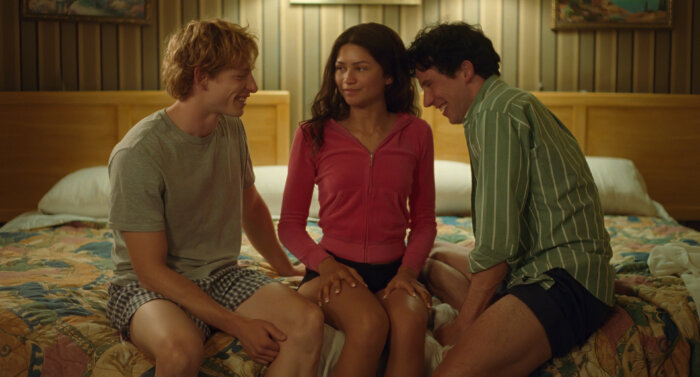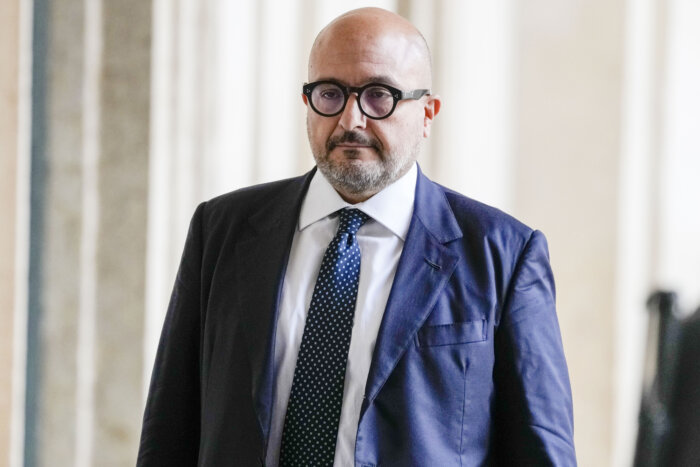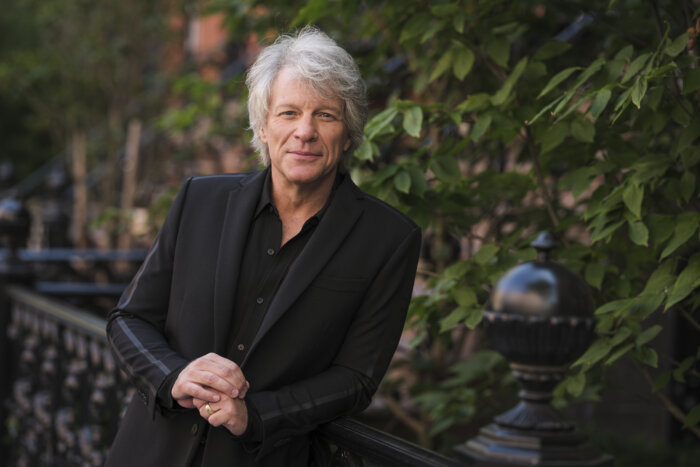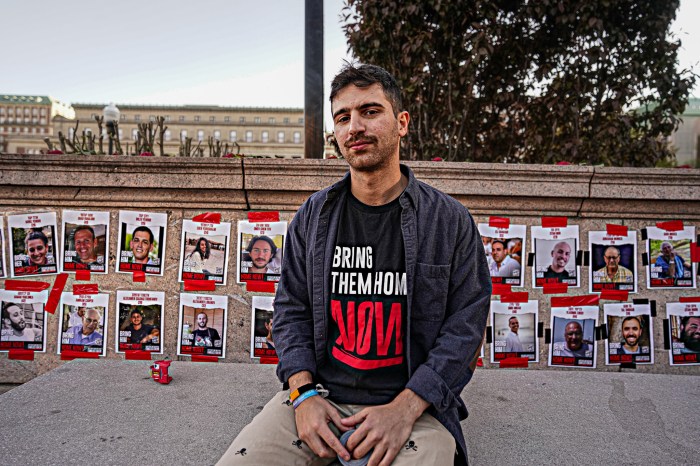Tenoch Huerta usa el escenario global de ‘Wakanda Forever’ para enfatizar la inclusión
Por BERENICE BAUTISTA Associated Press
Los créditos iniciales de “Wakanda Forever” apropiadamente dicen “presentando a Tenoch Huerta”.
Qué introducción ha sido.
El papel de Huerta como Namor en la secuela de “Black Panther (La Pantera Negra)” cautivó al público, catapultándolo al escenario mundial y provocando conversaciones sobre raza e identidad, tanto en su México natal como en el extranjero. También llevó a Huerta a ser nombrado uno de los Artistas Revelación de The Associated Press de 2022, uniéndose a las filas de Sadie Sink, Daryl McCormack y su destacado compañero de Marvel, Iman Vellani.
Como muchos de los galardonados como Artista Revelación, Huerta no es un recién llegado. Ha aparecido en numerosas películas como “The Forever Purge” y series como “Mozart in the Jungle” y “Narcos: Mexico”. Pero “Wakanda Forever” le ha dado un nuevo nivel de exposición global, que está utilizando para promover varias causas como la inclusión y la justicia social.
Huerta creció en Ecatepec, un área suburbana de la Ciudad de México, tristemente célebre por sus altos niveles de delincuencia y a menudo descrita prejuiciosamente por la gente de la capital.
“No es fácil venir de ahí”, dijo Huerta en una entrevista reciente en la Ciudad de México durante la promoción de “Wakanda Forever”. La zona está cerca de la capital, pero “puedes pasar un par de horas para llegar a la estación de metro más cercana, hay violencia”.
Huerta, de 41 años, reconoció que el hecho de no ver “personas de piel morena” como él en la pantalla o el teatro, y definitivamente tampoco en los anuncios, le hizo creer que actuar no era una posibilidad seria. “No puedes soñar con algo que puedes ver”, dijo.
Pasó muchos años jugando fútbol americano, y no fue hasta que su padre le insistió que consideró actuar. “Cuando tenía 16 años mi padre me insistió para que fuera actor, me empujó a tomar talleres”, dijo Huerta. “El taller era de dos o tres semanas, y estuve nueve meses. Me gustó mucho pero nunca fue mi plan de vida, era solo un pasatiempo”.
Siguió yendo a los castings y fue seleccionado para interpretar a un jardinero que entretiene a jóvenes blancos ricos en la ópera prima de Gael García Bernal “Déficit” (2007). Eso lo llevó por primera vez al Festival de Cine de Cannes, un viaje que repitió en 2011 con “Days of Grace” de Everardo Gout, por la que ganó el Ariel, el equivalente mexicano a los Oscar, como mejor actor.
“Hasta ese momento asumí, entendí que era actor, pero lleva mucho tiempo y una nominación al Ariel, muchos premios alrededor del mundo y en México, y finalmente en ese momento pensé, ‘Ok, soy un actor.’ Fue un proceso”, dijo Huerta.
Huerta dijo que era fanático de las películas de Marvel y que se alegró mucho cuando recibió una videollamada del director Ryan Coogler, quien le explicó la trama de “Wakanda Forever”. La historia incluía un chamán y una poción que la gente bebía antes de saltar al océano.
“La comunicación se congeló durante unos cinco minutos, así que cuando regresó, dijo ‘¿Entonces qué piensas?'”, recordó Huerta. “Nunca entendí claramente de qué se trataba esta oferta y luego se lo dije a mis agentes, y descubrieron que él (Coogler) me estaba ofreciendo a Namor. Supuse que era el chamán, pero dijeron: ‘No, es Namor'”.
Su personaje es el líder de Tlalokan, el mundo submarino donde vive Namor. Es un mundo vibrante inspirado en la arquitectura y la cultura prehispánica, creado con la ayuda de expertos mayas.
“Crecieron en comunidades mayas, son hablantes de maya y tienen títulos y todas las credenciales para trabajar en esta película”, dijo Huerta. “Solo puedo decir que Marvel y Disney están haciendo un gran trabajo de inclusión y representación y, finalmente, la gente como yo podemos vernos en esta película, tan orgullosos, tan hermosos y tan poderosos, eso es un regalo”.
Huerta dijo que la segunda mejor parte, después de la tranquilidad de colaborar con expertos en la película, fue hacer todo el entrenamiento y las batallas, aprender a contener la respiración durante minutos bajo el agua y usar cables para simular los vuelos de Namor.
“En la vida real… me duelen las rodillas, la espalda y todo. Soy un simple humano, y por cierto me estoy haciendo viejo”, dijo Huerta sonriendo. “Pero en la película es una gran experiencia”.
En México Huerta se ha convertido en un símbolo de la lucha por la justicia racial, ganando elogios pero también enfrentando críticas de personas que lo consideran problemático porque al ser una persona de piel oscura, Huerta denuncia prejuicios contra quienes se parecen a él.
Huerta publicó recientemente “Orgullo prieto”, un libro en el que recuerda sus propias experiencias frente al racismo y el clasismo en su país.
“Para mí este libro es una forma de decir que necesitamos aprender, necesitamos cambiar y luego tratar de tener una mejor sociedad. Escribí este libro especialmente para los niños, para los jóvenes”, dijo el padre de dos niñas. “Trato de crear, tanto como puedo, un mejor lugar para vivir para ellos”.
Verse a sí mismo como un artista innovador le da esperanza a Huerta.
“No sé cómo va a cambiar mi vida a partir de este momento, pero espero que esta película afecte a las personas, a los niños, y si los niños pueden mirarse en el espejo y sentirse orgullosos”, dijo. “Si son capaces de mirarse y sentirse orgullosos de sí mismos, para mí es perfecto.
By BERENICE BAUTISTA Associated Press
The opening credits of “Wakanda Forever” fittingly say “introducing Tenoch Huerta.”
What an introduction it’s been.
Huerta’s role as Namor in the “Black Panther” sequel has wowed audiences, catapulting him onto the global stage and sparking conversations about race and identity, both in his native Mexico and abroad. It’s also led to Huerta being named one of The Associated Press’ Breakthrough Entertainers of 2022, joining the ranks of Sadie Sink, Daryl McCormack and his fellow Marvel standout, Iman Vellani.
Like many of the Breakthrough Entertainer honorees, Huerta isn’t a newcomer. He’s appeared in numerous films such as “The Forever Purge” and series like “Mozart in the Jungle” and “Narcos: Mexico.” But “Wakanda Forever” has given him a new level of global exposure, which he’s using to advance several causes like inclusivity and social justice.
Huerta grew up in Ecatepec, a suburban area of Mexico City, infamous for its high levels of delinquency and often referred with prejudice by the people in the capital.
“It’s not easy to come from there,” said Huerta in a recent interview in Mexico City during the promotion of “Wakanda Forever.” The area is close to the capital, but “you can spend a couple of hours to reach the nearest subway station, there’s violence.”
Huerta, 41, acknowledged that the fact that he didn’t see “brown skin people” like him on screen or theater, and definitively not in advertisements, made him believe that acting wasn’t a serious possibility. “You can’t dream of something that you can see,” he said.
He spent many years playing American Football, and it wasn’t until his father prodded him that he considered acting. “When I was 16 my father insisted to me to become an actor, he pushed me to take workshops,” said Huerta. “The workshop was for two or three weeks, and I spent nine months. I liked it a lot but, (it) never was my life plan, it was just a hobby.”
He kept going to casting calls and was selected to play a gardener who entertains white rich youngsters in Gael García Bernal’s debut feature “Deficit” (2007). That took him to the Cannes Film Festival for the first time, a journey he repeated in 2011 with Everardo Gout’s “Days of Grace,” for which he won the Ariel, the Mexican equivalent to the Oscars, as best actor.
“Until that moment I assumed, I understood I was an actor, but it takes a long time and a nomination to the Ariel, many awards around the world and in Mexico, and finally in that moment I thought, ‘Ok I’m an actor.’ It was a process,” said Huerta.
Huerta said he was a fan of Marvel movies and was really pleased when he received a videocall from the director Ryan Coogler who was explaining the plot of “Wakanda Forever.” The story included a shaman and a potion that people drank before jumping into the ocean.
“The communication was frozen for about five minutes so when he is back, he says ‘So what do you think?'” recalled Huerta. “I never understood clearly what was about this offer and then I told my agents, and they found out that he (Coogler) was offering me Namor. I assumed it was the shaman, but they said, ‘No its Namor.'”
His character is the leader of Tlalokan, the subaquatic world where Namor lives. It is a vibrant world inspired by pre-Hispanic architecture and culture, created with help from Mayan experts.
“They grew up in Mayan communities, they are Mayan speakers and they have degrees and all the credentials to work in this movie,” said Huerta. “I just can say that Marvel and Disney they’re making a really great job of inclusion and representation and finally people like us, we’re able to see ourselves in this movie, so proud, so beautiful and so powerful, that’s a gift.”
Huerta said the second-best part, after the reassurance of collaborating with experts in the film, was to do all the training and battles, learning to hold his breath for minutes underwater and use wires to simulate the flights of Namor.
“In real life … my knees hurt, my back and everything. I’m a simple human, and I’m getting old by the way,” said Huerta smiling. “But in the movie it’s such a great experience.”
In Mexico Huerta has become a symbol of the fight for racial justice, winning acclaim but also facing criticism from people who consider him problematic because as a person with dark skin, Huerta denounces prejudice against those who look like him.
Huerta recently published “Orgullo prieto” (which loosely translates as Dark Skinned Pride) a book in which he recalls his own experiences facing racism and classism in his country.
“For me this book is a way to say we need to learn, we need to change and then try to have a better society. I specially wrote this book for the kids for the young people,” said the father of two girls. “I try to create, as much as I can, a better place to live for them.”
Seeing himself as a breakthrough artist brings Huerta hope.
“I don’t know how my life is gonna be changed from this point on, but I hope this movie affects the people, affects the kids and if the kids are able to look at themselves on the mirror and feel proud,” he said. “If they are able to look at them and feel proud of themselves, for me, that’s perfect.”
































